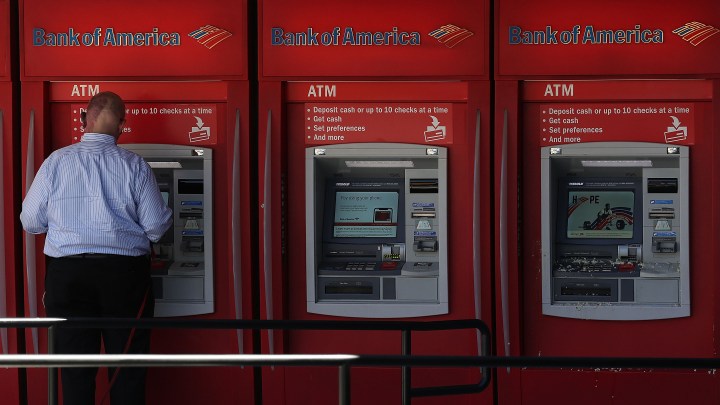
U.S. households had better bank access in 2019, FDIC says. And then the pandemic happened.
U.S. households had better bank access in 2019, FDIC says. And then the pandemic happened.

Before the pandemic, the number of households without either a checking or savings account was falling. But that trend could reverse given the economic crisis created by COVID-19.
Marketplace’s Erika Beras has more on these numbers. The following is an edited transcript of her conversation with “Marketplace Morning Report” host David Brancaccio.
David Brancaccio: What are the numbers?
Erika Beras: First of all, these numbers are from 2019, so pre-pandemic. The survey found that households where no residents had a checking or savings account — or unbanked households — fell to 5.4% from 6.5% in 2017. And 1.5 million households had a member open one of those bank accounts. That’s the lowest rate since the FDIC survey began back in 2009. It reflects a time when unemployment was at a record low.
Brancaccio: Who are we talking about when we say the unbanked?
Beras: Black and Latinx households are more likely to be unbanked than white households. The rate for those groups in 2019 was 13.8% and 12.2%. For white households, it was 2.5%.
Bank account holders have to meet minimum balance requirements. Otherwise you end up paying monthly fees. And lots of people don’t have a few hundred dollars just to have a bank account.
Brancaccio: But these were 2019 numbers and 2020 is a different universe.
Beras: We are in a pandemic with a jobless rate at nearly 8%. This kind of economic turmoil means the number of unbanked households could rise again.
Brancaccio: And when a family has no bank, remind us of the concern.
Beras: In many cases, it means when you pay bills, you are paying additional fees for a money order. If you get checks, you have to rely on check cashing. You aren’t building credit or earning interest. And in this time of increased e-commerce, it makes it harder to buy things online.
There’s a lot happening in the world. Through it all, Marketplace is here for you.
You rely on Marketplace to break down the world’s events and tell you how it affects you in a fact-based, approachable way. We rely on your financial support to keep making that possible.
Your donation today powers the independent journalism that you rely on. For just $5/month, you can help sustain Marketplace so we can keep reporting on the things that matter to you.











